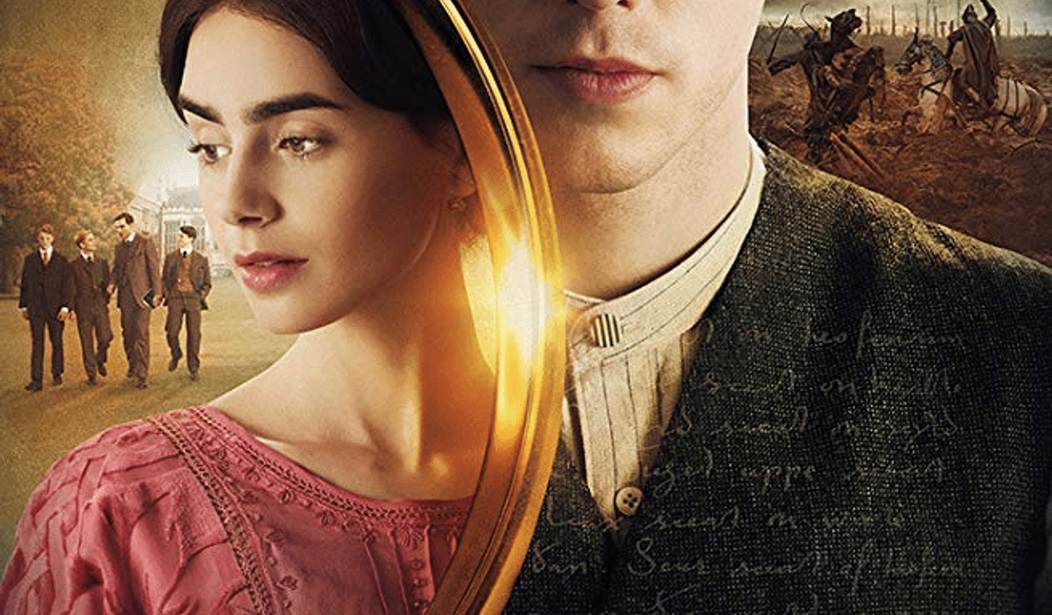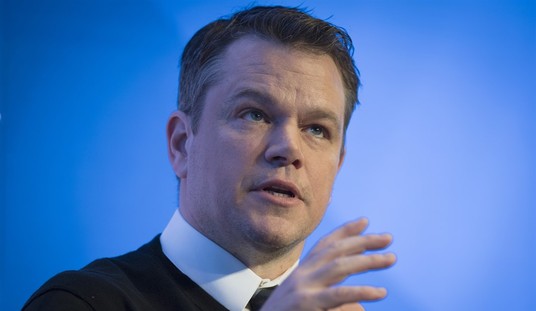Disney’s new film Tolkien premiers this weekend, and the trailers promise an engrossing biopic, complete with scenes from the First World War. The movie aims to show how J.R.R. Tolkien’s early life inspired the creative genius behind such works as The Hobbit and The Lord of the Rings, which are rightly recognized as classics and which both inspired epic film franchises (one far superior to the other).
Yet the new Disney film — developed by Fox Searchlight Pictures, which was purchased by Disney in March — cuts out some of the most important influences in his life. The movie does not once mention the great ex-atheist and Christian author C.S. Lewis, a close friend of Tolkien. Indeed, Tolkien said he would never have completed The Lord of the Rings without Lewis’ “great encouragement.” The movie also does not mention the Inklings, the society of writers who read each other’s works and spurred both Lewis and Tolkien on to greatness. The film focuses on the early influences of Tolkien’s life, so these cuts may be justifiable.
Worst, however, is the film’s neglect for Tolkien’s faith, which inspired his entire life. The movie also cuts out the literary works that inspired his imagination — touchstones of the Western literary tradition. In fact, the author’s literary masterpiece The Lord of the Rings is heavily influenced not just by the Western literary tradition but by Christianity and Jesus in particular.
“This handsome, earnest, yet overstuffed and poorly paced film deviates frequently from the historical record,” Father Michael Ward wrote in The Catholic Herald. “Most seriously, it ignores Tolkien’s devout Christian faith: there is no indication that he served Mass daily as a boy or ever even entered a Catholic church.” Indeed, this may be a reason why the Tolkien estate disavowed the film.
Joseph Loconte, Ph.D., an associate professor of history at The King’s College in New York City and author of the recent book A Hobbit, A Wardrobe, and a Great War: How J.R.R. Tolkien and C.S. Lewis Rediscovered Faith, Friendship, and Heroism in the Cataclysm of 1914-18, saw the film on Tuesday and noted the glaring omissions in remarks to PJ Media.
“In Tolkien, Finnish film director Dome Karukoski deserves credit for drawing our attention to some of the most formative influences in the life of J.R.R. Tolkien before he became the author of The Hobbit and The Lord of the Rings,” Loconte told PJ Media. “Many will learn for the first time about his experience in the trenches of the First World War, about the vital circle of friendships he made before the war, about his passion for languages, and about his love for the woman who inspired him and who would become his wife.”
Yet these positive elements gloss over key parts of the author’s life. Some of the omissions are justifiable, like the excising of Lewis.
“Serious Tolkien fans might wonder why the film offers no hint of another vital influence: his friendship with Christian author and apologist C.S. Lewis. But Karukoski wanted to explore the earliest events and experiences that helped shape Tolkien’s astonishing imagination, and Lewis arrives later, in post-war Oxford,” Loconte explained. “The story of Lewis, Tolkien, and the Inklings—the circle of Christian authors and friends who met weekly to discuss literature, faith, and other weighty topics—deserves its own film treatment.”
Yet Fox Searchlight’s treatment falls far short in addressing two fundamental touchstones of Tolkien’s life and work. While Karukoski may have captured “the theme of imagination,” he failed to delve into “two of the most important aesthetic and intellectual forces in Tolkien’s life: the ancient and medieval texts of the Western literary tradition and the Catholic faith of the author.”
Loconte, a Tolkien biographer, is intimately aware of just how deeply the Western literary tradition and the Catholic faith inspired this pivotal author.
“As a student at the King Edward’s School at Birmingham and later at Oxford, Tolkien was immersed in works such as The Aeneid, Le Morte d’Arthur, and Beowulf. Here are stories of the noble quest: the tragic hero who answers the righteous call on his life, acts with courage, and performs his duty—regardless of the chances of success,” Loconte said. “The triumph of multiculturalism, however, has mostly marginalized these works from the academy, along with the ideals and virtues they embody. Despite its respect for Tolkien’s intellectual life, the film’s writers seem unable or unwilling to explore it with care.”
Literary references in the film are limited to a brief mention of Richard Wagner’s four-part opera cycle Der Ring des Nibelungen, which did influence The Lord of the Rings, along with many other works that were not mentioned, like Plato’s Republic.
Yet even this horrible omission seems small compared to the way Fox Searchlight cut any traces of Tolkien’s Roman Catholic faith from the film.
“Tolkien’s Christian faith is another great factor in his life and career, a force that animates all of his creative energies,” Loconte explained. “Orphaned as a teenager, Tolkien came under the care of a Catholic priest, who is portrayed sympathetically in the film. Yet there is no hint that Tolkien possessed a faith of his own, or that it was a source of strength and comfort during the tragedy of the war.”
Loconte’s recent book recounts how World War I influenced Lewis and Tolkien in both their writings and their faith. The author of The Lord of the Rings drew on his faith for strength in the trenches. For a film focused on Tolkien’s struggle in World War I to omit this faith is a grave disservice, yet the author’s faith drove his entire life. Indeed, there is no scene of him praying or even speaking about religion.
“In fact, Tolkien was a regular churchgoer, and even attended Mass whenever he could while a soldier at the Western Front. In explaining the power of myths to grip our imagination, Tolkien spoke of the eucatastrophe—the reversal of a catastrophe through ‘a sudden and miraculous grace,'” Loconte explained.
The biographer appreciated much of the Tolkien film, but he argued the movie ultimately falls flat, failing to capture the true inspiration behind the author of The Lord of the Rings.
“Until Hollywood acknowledges this grace as a divine reality, as an authentic source of literary imagination, its treatment of Tolkien will remain small and insular, like a fretful hobbit afraid to ever leave the Shire,” he declared.
Sadly, this is not the first time a film owned by Disney has cut the Christian element. Last year, the movie Wrinkle in Time removed Bible quotes from the original book, even though those quotes would have enabled the confusing storyline to make some sense. The movie was clearly less powerful with the Christianity removed, but Disney excised it, ostensibly for political reasons.
As for the recent film, Fox Searchlight was right to make a movie about this important author, and the film’s focus on experiences in World War I were also admirable. But without any mention of the Western literary tradition or the Christian faith, no film can hope to capture the true inspiration of J.R.R. Tolkien.
Correction: The original version of this article attributed Fox Searchlight Pictures’s artistic decisions to Disney, which owns Fox Searchlight but did not take part in the creation of the film. The film is still under the Disney umbrella, so it is a Disney film, but the artistic decisions were made under Fox Searchlight, not Disney.
Follow Tyler O’Neil, the author of this article, on Twitter at @Tyler2ONeil.









Join the conversation as a VIP Member